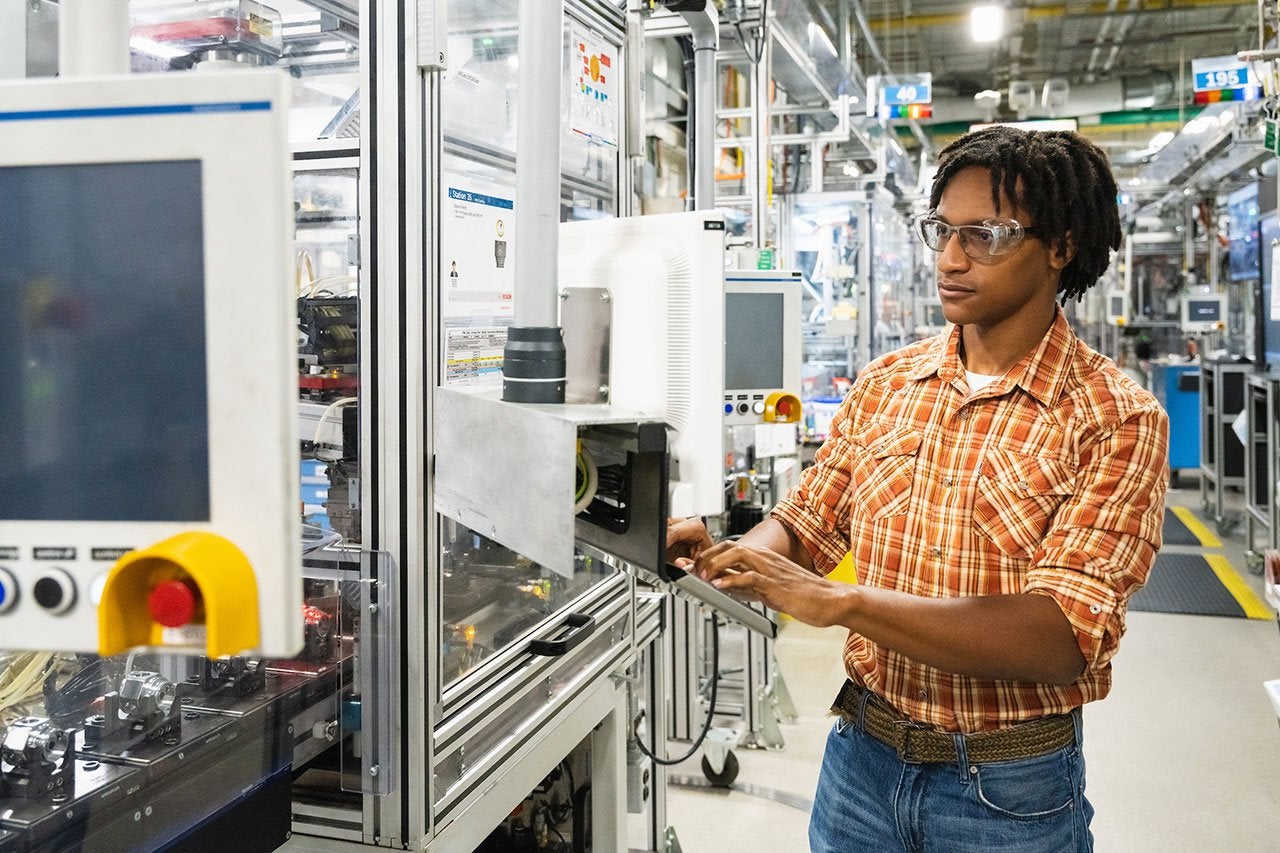When Ohaji Clark heard rumblings about a systems engineering degree at the College of Charleston, he knew he wanted in. His sophomore year the program officially launched, and Clark didn’t hesitate to change majors.
“It definitely added years to getting my degree, but it’s worth it,” says the Charleston native.
Clark then proceeded to tack on even more time by applying for the systems engineering co-op offered by Robert Bosch LLC (Bosch) through the College’s Career Center.
Bosch set up its co-op program because it understands the value of developing systems engineers over time.
“We work with universities like the College of Charleston because we know it’s important for students to gain hands-on experience related to their field,” says John Penton, connectivity architect and digital transformation leader at Bosch’s Charleston plant. “Students get the opportunity to participate in different areas of our business and develop technical and professional skills. Of course, we also benefit from the questions and insights that students have on our projects.”

As part of his co-op, Clark assisted with building the facility’s new cafeteria. (Photos by Mike Ledford)
Clark was accepted into the Bosch co-op program, which requires working on site at the Bosch facility in North Charleston full-time for three semesters. Clark, who is the first CofC systems engineering student to participate, is already into his second semester working with Bosch’s facilities management team. He had the opportunity to be part of building the facility’s new cafeteria, where his main responsibilities were working with the onsite contractors and supporting the project manager.
“Participating in the co-op has given me the opportunity to grow and learn the ropes,” says Clark, who notes that the work he is doing is complex. “It is a great way to gain hands-on experience and a no-risk chance to find if it’s what you like while building credentials for your future career.”
Tim Walker, manager, Facilities at Bosch, agrees. “Students realize that their time spent in the program can provide an accurate glimpse of their potential future working environment,” he explains. “Also, they are able to share their experiences with other students in the co-op program to learn more about the many career fields available on a site such as ours.
“Ohaji is a perfect match for our co-op needs,” adds Walker. “He is hard working, diligent, responsible, cooperative, confident and a good team player.”
Funke Oladimeji, systems engineering instructor and director of the College’s Engineering Program, is thrilled that Clark is paving the way for future engineering co-ops.
“I have known Ohaji since his sophomore year at CofC,” says Oladimeji. “I have seen his growth, and I am impressed with his commitment and ability to get things done and get them done right. Aside from his good communication and organizational skills, he possesses a healthy level of intellectual curiosity, which I believe is a recipe for good success as a systems engineer.”
Oladimeji thinks having a strong student like Clark as Bosch’s initial co-op systems engineer will help future students who wish to participate. She finds the opportunity to tackle real-world projects an important part of an engineer’s university experience.
“It’s so important to be exposed to practical applications of what they are learning in the classroom,” explains Oladimeji. “The co-op experience is also important as a significant portion of an engineer’s work is collaborative. Through co-ops, students can learn how working efficiently in teams can lead to innovations and increased success in projects. Of course, the added bonus is networking and learning about their future prospects.”
By being proactive and seizing opportunities, Clark is learning how to apply his classroom learning in an industrial setting — something that is certain to help him in his future career.
Learn more about Bosch co-op opportunities.




